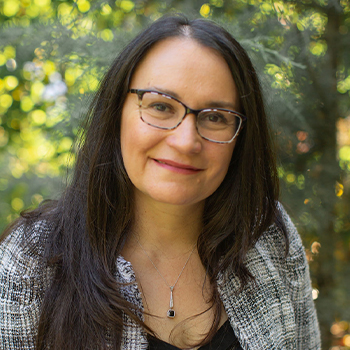Why we feel empty, mistrustful, and drawn to unhealthy relationships
I remember being at my friend’s house when I was about 12. We were working on a school project when her mom suggested making cookies together. As we all went into the kitchen, her mom asked me, “Have you made cookies before?” I said yes—but the truth was, I hadn’t. I had never baked with my mom.
I watched them—laughing, deciding what kind of cookies to make, clearly used to this sweet little ritual—and I felt a knot in my stomach. A deep, aching hole. I didn’t have that kind of bond with my own mom.
It wasn’t until my 30s that I understood: what I experienced in childhood was emotional neglect.
And the truth is, emotional neglect is one of the most overlooked wounds, yet one of the most impactful—especially when it comes to feelings of emptiness, difficulty in relationship, and a deep, often unshakable sense that something is missing.
What is emotional neglect?
Emotional neglect happens when a child’s emotional needs go unmet—often not out of malice, but because parents are overwhelmed, emotionally unavailable, or unaware. Unlike emotional or physical abuse, neglect is subtle. It’s the absence of what you needed most: to feel safe, seen, and soothed.
I was raised by a single mother who worked incredibly hard to support us. She’s a good person. But she was so busy, and that meant I didn’t get connection and comfort I needed consistently. I learned early to “be strong,” to hide how I felt, and to act like the tough little adult in the room.
What are the signs of emotional neglect in adults?
Most people don’t walk into adulthood thinking, “I was emotionally neglected.” Instead, they come in with symptoms like:
- Feeling empty, like something is always missing
- Difficulty identifying or expressing emotions
- A deep mistrust of others, even in close relationships
- Perfectionism or people-pleasing
- Low self-esteem
- Difficulty setting boundaries
- Struggles with emotional safety—you don’t feel safe opening up
- Fear of rejection or intimacy
- Numbness or emotional disconnection
- Difficulty in relationships that feel confusing, unbalanced, or unfulfilling
As Dr. Jonice Webb explains, “Emotionally neglected adults often have no childhood memories that explain their struggles—so they blame themselves.”
Why do I get into unhealthy relationships?
If your emotional needs weren’t consistently met as a child, your nervous system may have learned that love is unreliable—or even painful. You might find yourself drawn to partners who feel familiar but not safe. You may tolerate disrespect, emotional distance, or mistreatment because deep down, part of you believes you don’t deserve better.
And when someone does show up for you emotionally, it might feel uncomfortable or even triggering—because your system isn’t used to emotional safety.
Why do I feel empty, like something’s missing—even when life looks good?
That hole in your chest isn’t a lack of success, relationships, or material things. It’s a lack of emotional connection. Without being truly seen, heard, and supported in childhood, that part of you keeps waiting—sometimes forever—for someone to come fill that space.
But here’s the truth: no one else can fill it.
But you can heal it.
You can repair the wound
I’ve worked with so many clients who say, “My mom did her best,” and *“I had a good childhood”—*yet they struggle with the exact symptoms above. Emotional neglect doesn’t mean your parents didn’t love you. It means they couldn’t give you what they didn’t have themselves.
As Lindsay Gibson, PsyD, writes in Adult Children of Emotionally Immature Parents:
“These parents may provide food, shelter, and education—but when it comes to emotional matters, they can be oblivious to their children’s needs.”
That doesn’t mean it’s hopeless. Neuroscience and trauma research now show us that healing is always possible. It is possible to rewire your nervous system. You can learn to create safety within yourself and address the difficulty in relationships.
And become the mother you never had—for yourself.
As Peter Levine says,
“It’s never too late to have the childhood you deserved.”
This Mother’s Day, give yourself the gift of recognizing your wounds and honoring your healing journey. Whether it’s through therapy, journaling, or simply beginning to name what you feel—you can start today.


